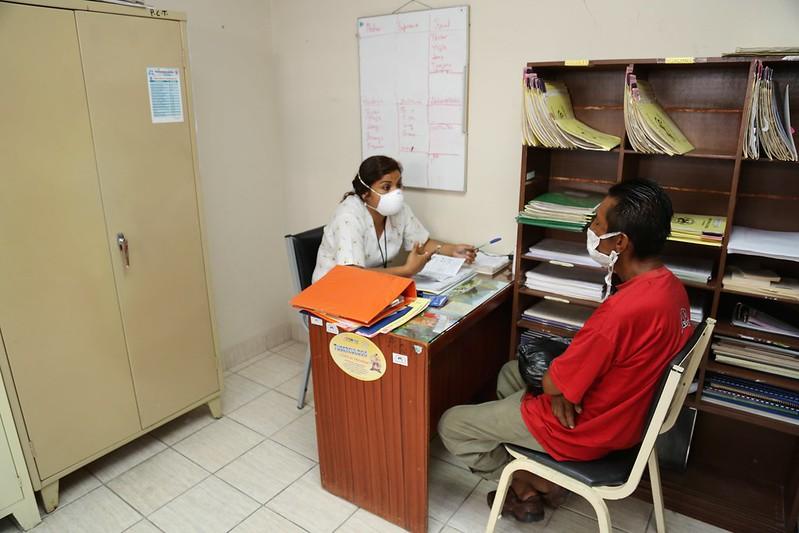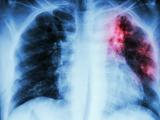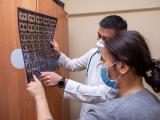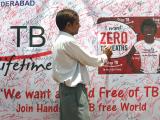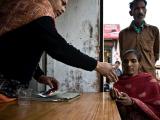For more than 100 years, there's been only one licensed vaccine for tuberculosis (TB). But a newly launched phase 3 trial, if successful, could eventually change that.
The trial, announced today by the Bill & Melinda Gates Medical Research Institute (Gates MRI), will evaluate whether the adjuvanted subunit vaccine M72/AS01E protects adolescents and adults from progressing from latent TB to active pulmonary TB and is well tolerated. The first doses in the trial have been administered at a site in South Africa, which has one of the highest burdens of TB in the world.
The investigators say the launch of the trial is a significant step in efforts to control TB, a respiratory disease that killed 1.3 million people in 2022, primarily in low- and middle-income countries. With more than 10 million newly diagnosed cases each year, many in impoverished people in their prime working years, TB also has profound socioeconomic impacts in low-resource countries.
In a phase 2b trial in 2019, the vaccine showed roughly 50% protection against progression to active pulmonary TB in adults with latent TB. A 2022 report from the World Health Organization (WHO) estimated that a vaccine that was at least 50% effective in reducing TB disease in adults and adolescents could prevent up to 76 million cases and 8.5 million deaths over 25 years and avert more than $41 billion in TB-related catastrophic household costs.
Lead developer Alemnew Dagnew, MD, MsC, MPH, of Gates MRI, said that if he and his colleagues can replicate the findings from the phase 2b trial, the M72/AS01E vaccine could "reinvigorate" the global fight against TB, which took a significant hit during the COVID-19 pandemic.
"If the vaccine is efficacious, it will have a huge impact on the control of TB globally," Dagnew told CIDRAP News.
Trial will involve 20,000 participants in 7 countries
Originally designed and clinically evaluated by British pharmaceutical company GSK, along with Aeras and the International AIDS Vaccine Initiative, the vaccine combines the M72 recombinant fusion protein—derived from two Mycobacterium tuberculosis antigens—with GSK's proprietary adjuvant AS01E. In 2020, Gates MRI entered a partnership with GSK to further develop the vaccine and license it for low-income, high–TB-burden countries.
Under that agreement, Gates MRI is conducting the trial with funding from the Bill & Melinda Gates Foundation and the Wellcome Trust. GSK will provide the adjuvant post-licensure if the trial is successful.
The investigators aim to enroll up to 20,000 participants, including people living with HIV, at 60 trial sites in South Africa and six other countries—Zambia, Malawi, Mozambique, Kenya, Indonesia, and Vietnam. Participants in the double-blind trial will receive either M72/AS01E or a placebo. It's expected to take at least 5 years to complete the trial.
"While it is a long journey to results, the start of this trial in South Africa brings us a critical step closer to having an effective vaccine to protect those most at risk of TB," Alex Pym, PhD, Director of Infectious Diseases at Wellcome, said in a Gates MRI press release.
"After dedicating over 20 years to developing this essential candidate vaccine, we at GSK are delighted that the Phase 3 trial is underway," said Deborah Waterhouse, President of Global Health at GSK.
If the vaccine is efficacious, it will have a huge impact on the control of TB globally.
If the trial proves successful, M72/AS01E would the first licensed TB vaccine since the bacilli Calmette-Guerin (BCG) vaccine, which was introduced in 1921. While BCG is effective at preventing severe forms of TB in children under 5, it offers poor protection against other forms of TB and TB-related diseases in adults and adolescents.
"BCG's effects on pulmonary TB in adults and adolescents is not that significant," Dagnew said. "The majority of TB cases occur in adolescents and adults, and because of their high mobility and interaction with the community, adolescents and adults are primarily responsible for the transmission of TB."
Dagnew, who previously worked as a physician in Ethiopia and saw first-hand the impact of TB, called latent TB infection—in which people are infected with TB bacteria but have no symptoms—a "ticking time bomb" that can have significant economic and social impacts when it develops into active pulmonary TB.
"It can leave kids without parents," he said. "And this can have huge consequences in the communities where TB is common."
A challenging target for vaccines
M72/AS01E is one of 17 TB vaccine candidates in clinical development. In January 2023, WHO Director-General Tedros Adahanom Ghebreyesus, PhD, announced the formation of a TB Vaccine Accelerator to speed the licensing and use of TB vaccines, comparing the program to WHO's efforts to boost development, production, and equitable access to COVID-19 vaccines, treatments, and tests.
At a meeting held during the World Economic Forum in Davos, Switzerland, to announce the program, Tedros said many of the TB vaccines had been languishing for years because TB hasn't been in the spotlight.
"What's now needed is renewed commitment…and action, with a sense of urgency," Tedros said. "If it was done for COVID, there's no reason that it cannot be done for this."
Dagnew said that while TB is a challenging target for vaccines, he thinks M72/AS01E has the potential to succeed where others have failed.
"The pathogen is complex, it has been evolving with human beings for years, and the immunology is not well understood," he said. "But we're really excited to have this big step forward."
